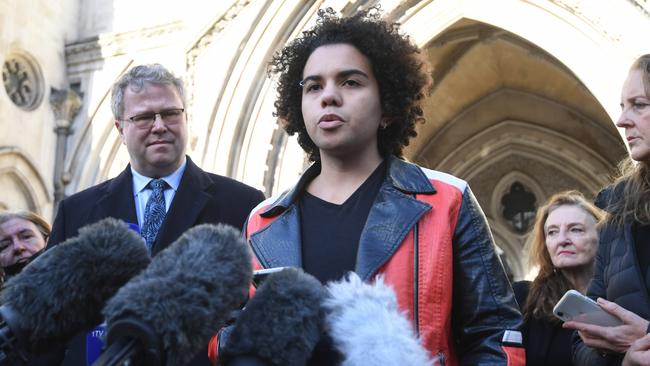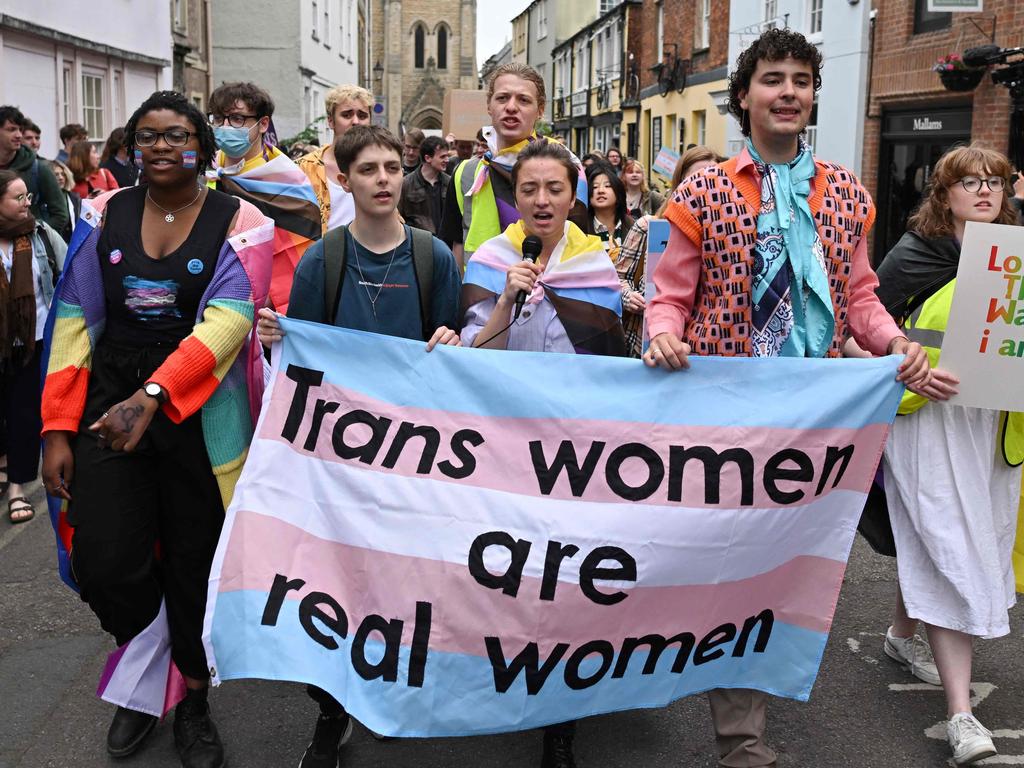Endocrinologists’ challenge to the medical transition of gender-questioning children silenced by medical college
The medical affairs committee of the nation’s peak endocrinology specialty society opposed the prescription of hormones to children under 18 in explosive advice to a peak medical college.

The medical affairs committee of the nation’s peak endocrinology society opposed the prescription of hormones to children and expressed deep reservations over the lack of evidence underpinning transgender affirmative medicine standards of care adopted by children’s hospitals in explosive advice to a peak medical college.
The Medical Affairs Committee of the Endocrine Society of Australia – a subspecialty college of the Royal Australasian College of Physicians – did not support the endorsement of gender-affirmative standards of care developed by influential doctors at the Royal Children’s Hospital Melbourne, pointing to concerns about the lack of evidence behind practices including placing children on puberty blockers at a very young age.
The views of the ESA’s medical affairs committee are contained in a letter to the RACP, which in late 2019 was consulting the profession at the request of then health minister Greg Hunt who had requested advice on the treatment of gender dysphoria in children and adolescents.
The ESA’s letter reporting the position of its medical affairs committee advised that, after examining RCH policy documents, the specialist endocrinologists who made up the committee did not support giving puberty blockers or cross-sex hormones to children and raised concerns that the effects of puberty blockers were not reversible.

“ESA does not support formal RACP endorsement of the RCH document at this time,” said the letter, dated November 11, 2019.
“This is a complex area, the evidence base is limited and the RCH document largely reflects the authors’ opinion because, as the authors themselves state, ‘the published evidence on the topic prohibited the assessment of level (and quality) of evidence for these recommendations’.
“Secondly, there are sufficient concerns expressed in the correspondence received by RACP, and by other parties, to warrant further inquiry prior to making a decision on endorsement.”
The ESA called for the establishment of a formal working group independent of RCH doctors to review the issues.
The ESA now says the letter does not reflect the current position of the society, and that it supports gender-affirming care in line with World Professional Association for Transgender Health Standards of Care and Australian guidelines, “in keeping with the latest research evidence”.
In March 2020, the RACP wrote to Mr Hunt rejecting the need for a national review into gender-affirming medicine and saying that to withhold care from children and adolescents would be unethical. The calls for a review had been prompted by calls for a Cass-style inquiry following concerns in the UK over children being rushed onto puberty blockers, medically transitioned and later feeling regret. Those concerns were highlighted by the case of detransitioner Keira Bell.

The UK inquiry led to a decision to close the Tavistock gender clinic and changes to the treatment model, urging a more holistic approach instead of offering children only puberty blockers and cross-sex hormones.
The RACP in its advice to Mr Hunt acknowledged the lack of evidence base concerning gender-affirming care but said scientific evidence might take a long time to be produced. The RACP noted that the ESA had been consulted but gave no indication of the divergence of medical views on the issue. However, despite significant pressure from paediatricians aligned to the RCH protocol, the RACP stopped short of endorsing the RCH protocol due to the concerns of a number of endocrinologists and the Endocrine Society of Australia who recommended against endorsement of the RCH clinical protocol, with concerns centring in particular around clinical requirements prior to medical intervention which were seen by many endocrinologists as too lax. Instead, the RACP supported “the principles underlying (the RCH) guidelines”, specifically the emphasis on a multidisciplinary approach. The RACP rejected the need for a national inquiry.
“The RACP supports the principles underlying (the RCH) guidelines, specifically the emphasis on a multidisciplinary approach to providing person-centred care which prioritises the best interests, preferences and goals of the patient,” the RACP said.
It is understood the consultations leading up to the drafting of the advice were highly charged, with some committee meetings descending into screaming matches between experts amid accusations the RCH-dominated pediatricians faction was made up of activist doctors.
The RCH declined to comment on the issue when asked.
Such a concern was reflected in the view of an external adviser to the medical affairs committee, who reported that “the RCH approach claims to set Australian standards, but the document represents solely the attitudes of one group of advocates”.
The RCH developed guidelines several years ago in gender-affirming medicine for children adolescents. These guidelines became known as the Australian standards of care and treatment guidelines for transgender and gender diverse children and adolescents and were adopted by children’s hospitals around the country after RCH paediatrician Michelle Telfer published an article in the Medical Journal of Australia claiming “clinician consensus” on an affirmative approach that included prescribing puberty blockers at Tanner Stage 2, which is upon the first signs of puberty.
The RCH website currently states “as (puberty blockers) are reversible in their effects, should an adolescent wish to stop taking them at any time, their biological puberty will resume”.
The ESA raised concerns about such use of powerful hormone medications. “There are gaps in the evidence that the RCH document does not adequately address, one instance being the statement that GnRH analogs to block puberty progression are reversible,” it said.
“The evidence in children for that statement is limited: one review is cited of long-term follow-up of children treated with GnRH analogs for central precocious puberty. For boys, that summarises the only four very small, disparate and inconclusive studies available, two of which describe no long-term follow-up and none showed any meaningful evidence of ‘full reversibility’.”
The external reviewer also challenged the RCH argument that parents who did not want treatment imposed on their children were raising their child’s risk of suicide.
“RCH advocacy for an affirmative model is, in effect, accepting a child’s wishes as unassailable and implies that any parental reluctance to accept the diagnosis of gender dysphoria and its treatment is ill-informed resistance to be overcome by goal-oriented ‘counselling’,” the reviewer said.
“The RCH argument that non-treatment in the face of gender dysphoria is not neutral, uses an exaggerated risk of suicidality to make this unbalanced argument seem necessary.”
There were also concerns expressed by the reviewer that many children being gender transitioned may not have diagnosable gender dysphoria.“The RCH document does not address the real problem of differentiating genuine gender dysphoria (with early onset of unshakeable belief that the person was born and raised into the wrong sex) from others who are gender confused children or adolescents who consider themselves “non-binary”, “gender-fluid”, “agender”, “third gender”, etc” the reviewer quoted in the ESA letter said.
Paul Komesaroff, a Monash University professor of medicine, specialist endocrinologist and the Director of the Centre for Ethics in Medicine and Society, said the 2019 ESA letter reflected a level of uncertainty surrounding hormone treatments remained a live issue.
“Such features may connote youthful, yet to mature understanding of sex and gender. One view is that the latter should not be treated with puberty blockers or cross-sex hormones at least until adulthood and then only on the advice of an experienced psychiatrist and/or psychologist as part of a transgender medicine multidisciplinary team.”
“Many questions relating to gender-affirmative medicine remain unresolved at the present time, largely reflecting a lack of conclusive evidence,” Professor Komesaroff said.
“As a result, there is a range of views about some aspects of treatment, including especially the use of puberty blocking drugs in young people. This diversity of views has been expressed by physicians from different specialty perspectives for some years, leading many to express caution about clinical guidelines that are strongly directive and to favour ongoing processes of review and reassessment.
“Many endocrinologists support the establishment of a formal working group of physicians with relevant clinical expertise to review the issues and provide summaries and advice to help guide public policy.”
ESA president Ann McCormack issued a statement saying it supported gender-affirming care in keeping with the latest research evidence.
The RACP said in a statement that in late 2019 and early 2020 it “conducted a broad-ranging and confidential consultation process where a diverse range of advice was considered”.
“The RACP’s advice has always been that the federal government should develop a nationally consistent framework, through an evidence-based process, that is removed from public debate which harms children,” a spokesperson said.
Health Minister Mark Butler referred questions on the issue to the health department, which said: “The government recognises the clinical treatment of children and adolescents experiencing gender dysphoria is a complex and evolving area, and longer-term evidence to inform treatment protocols is still developing.”






